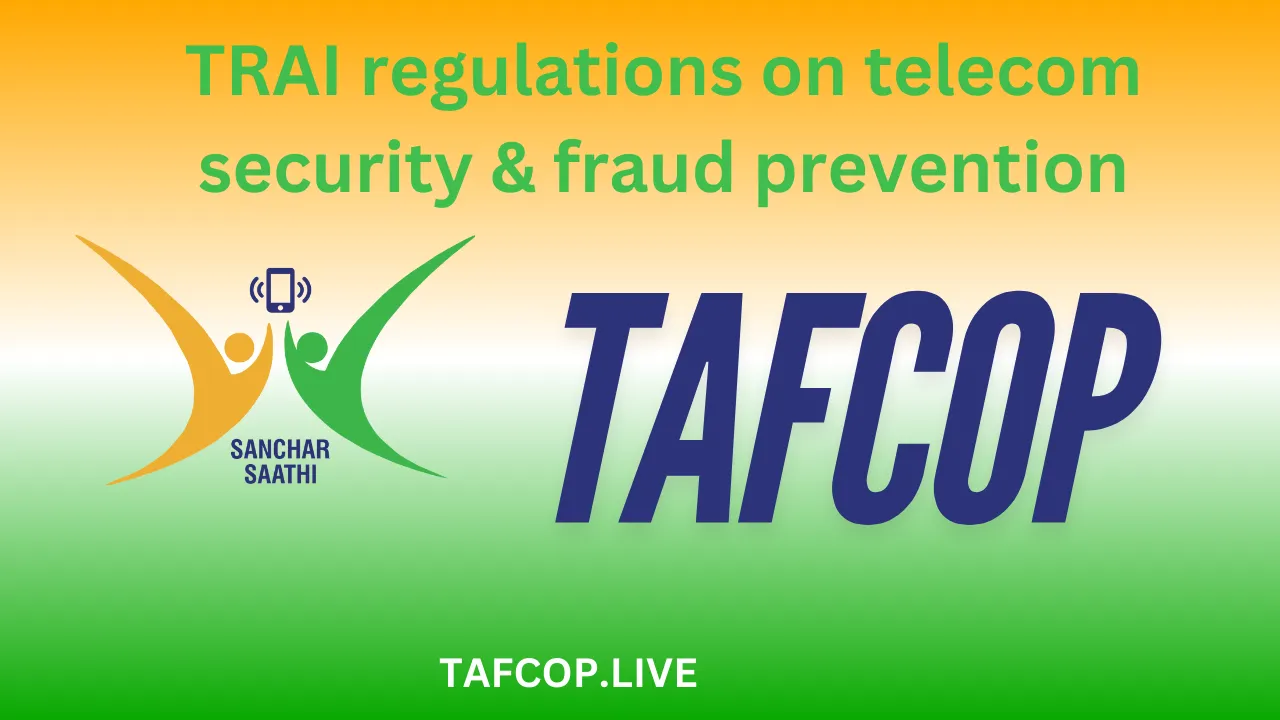Imagine this: You’re sipping your morning chai, scrolling through your phone, and suddenly, you get a text claiming you’ve won a luxury car. Sounds too good to be true, right? Well, it probably is. In a world where telecom fraud is as common as street-side pani puri, the Telecom Regulatory Authority of India (TRAI) has stepped up its game to protect us. From unsolicited calls to phishing scams, TRAI’s regulations are like a digital shield, safeguarding millions of Indians from falling prey to fraudsters. But how exactly do these rules work, and what do they mean for you? Let’s dive in.
TRAI regulations on telecom security & fraud prevention
TRAI’s regulations on telecom security and fraud prevention focus on blocking unsolicited commercial communications (UCC), verifying callers, and implementing AI-driven systems to detect and prevent fraudulent activities. These measures aim to protect consumers from spam, phishing, and financial fraud while ensuring a secure telecom environment.
What Are TRAI’s Key Regulations on Telecom Security?
Telecom security isn’t just about keeping your calls private; it’s about protecting your data, your money, and your peace of mind. TRAI has introduced several regulations to tackle the growing menace of telecom fraud.
The exact answer is: TRAI’s key regulations include mandating the use of blockchain technology for SMS headers and content templates, implementing the Do Not Disturb (DND) registry, and requiring telecom operators to verify caller identities using the Calling Name Presentation (CNAP) feature. These steps ensure that only legitimate messages and calls reach consumers, reducing the risk of fraud.
For example, the DND registry allows users to opt out of promotional messages and calls. If you’ve ever registered your number on DND but still received spam, TRAI’s blockchain-based system now ensures that such violations are tracked and penalized.
How Does TRAI Prevent Unsolicited Commercial Communications (UCC)?
Unsolicited calls and messages are more than just annoying—they’re a gateway to fraud. TRAI has taken a multi-pronged approach to curb UCC.
The exact answer is: TRAI prevents UCC by requiring telecom operators to use blockchain technology to register SMS templates and headers, ensuring that only authorized entities can send bulk messages. Additionally, TRAI has introduced a consent-based system, where businesses must obtain explicit permission from users before sending promotional content.
Think of it like this: If a business wants to send you a promotional message, they need your “yes” in writing (or digitally). No consent? No message. This system has significantly reduced spam, making your inbox a little less chaotic.
What Role Does AI Play in Telecom Fraud Prevention?
Artificial Intelligence (AI) isn’t just for sci-fi movies anymore—it’s a crucial tool in the fight against telecom fraud.
The exact answer is: AI helps detect and prevent fraud by analyzing call patterns, identifying suspicious activities, and blocking fraudulent numbers in real-time. For instance, if a number is making hundreds of calls in a short span, AI flags it as potentially fraudulent and takes action.
A real-life example? Imagine a scammer trying to impersonate your bank. AI systems can detect the unusual call pattern and block the number before it reaches you. It’s like having a digital watchdog that never sleeps.
How Does TRAI Protect Consumer Data?
In an era where data is the new gold, protecting it is paramount. TRAI has implemented several measures to safeguard consumer data.
The exact answer is: TRAI protects consumer data by enforcing strict data privacy norms, requiring telecom operators to encrypt sensitive information, and mandating regular audits to ensure compliance. These measures ensure that your personal information, like your call records and location data, stays secure.
For example, telecom companies must now use advanced encryption methods to protect your data from hackers. It’s like locking your personal information in a digital vault.
What Is the Do Not Disturb (DND) Registry, and How Does It Work?
The DND registry is one of TRAI’s most popular initiatives, but how does it actually work?
The exact answer is: The DND registry allows users to opt out of receiving promotional calls and messages by registering their numbers. Once registered, telecom operators are legally bound to stop sending unsolicited communications.
Here’s how it works: You send an SMS with “START 0” to 1909, and voila! You’re on the DND list. If you still receive spam, you can complain to TRAI, and the offending company could face hefty fines.
How Can Consumers Report Telecom Fraud?
If you’ve been a victim of telecom fraud, reporting it is crucial. TRAI has made the process simple and accessible.
The exact answer is: Consumers can report telecom fraud by sending a complaint to TRAI’s grievance redressal portal or using the TAFCOP.LIVE website. You’ll need to provide details like the fraudulent number, the nature of the scam, and any evidence (like screenshots or call recordings).
For instance, if you receive a phishing call pretending to be from your bank, you can report it immediately. TRAI will investigate and take action against the fraudster.
What Are the Penalties for Violating TRAI’s Regulations?
TRAI doesn’t just make rules—it enforces them with strict penalties.
The exact answer is: Violators of TRAI’s regulations face fines ranging from INR 1,000 to INR 50,000 per violation, and repeated offenses can lead to the revocation of telecom licenses. These penalties ensure that businesses and individuals think twice before breaking the rules.
For example, a company sending spam messages without consent could be fined heavily, and if they continue, they might lose their license to operate.
FAQs
1. What is TRAI’s role in telecom security?
TRAI regulates and oversees telecom services in India, ensuring security and preventing fraud through strict guidelines and advanced technologies.
2. How can I block spam calls and messages?
Register your number on the DND registry by sending “START 0” to 1909.
3. What should I do if I receive a fraudulent call?
Report it immediately on TRAI’s grievance portal or TAFCOP.LIVE with all relevant details.
4. Are businesses allowed to send promotional messages?
Yes, but only if they have your explicit consent.
5. How does AI help in fraud prevention?
AI analyzes call patterns, detects suspicious activities, and blocks fraudulent numbers in real-time.
Conclusion
TRAI’s regulations on telecom security and fraud prevention are a game-changer for Indian consumers. From blocking spam to protecting your data, these measures ensure that your telecom experience is safe and hassle-free. While no system is perfect, TRAI’s proactive approach, combined with advanced technologies like AI and blockchain, is a significant step in the right direction. So, the next time you get a suspicious call, remember—TRAI’s got your back. Stay informed, stay safe, and keep enjoying that chai without interruptions!
“In the fight against telecom fraud, awareness is your first line of defense.”
TRAI’s Key Initiatives
| Initiative | Purpose |
|---|---|
| DND Registry | Block unsolicited calls and messages |
| Blockchain for SMS | Ensure only authorized messages are sent |
| AI-Driven Fraud Detection | Identify and block fraudulent activities |
| Consumer Grievance Portal | Provide a platform for reporting fraud |

